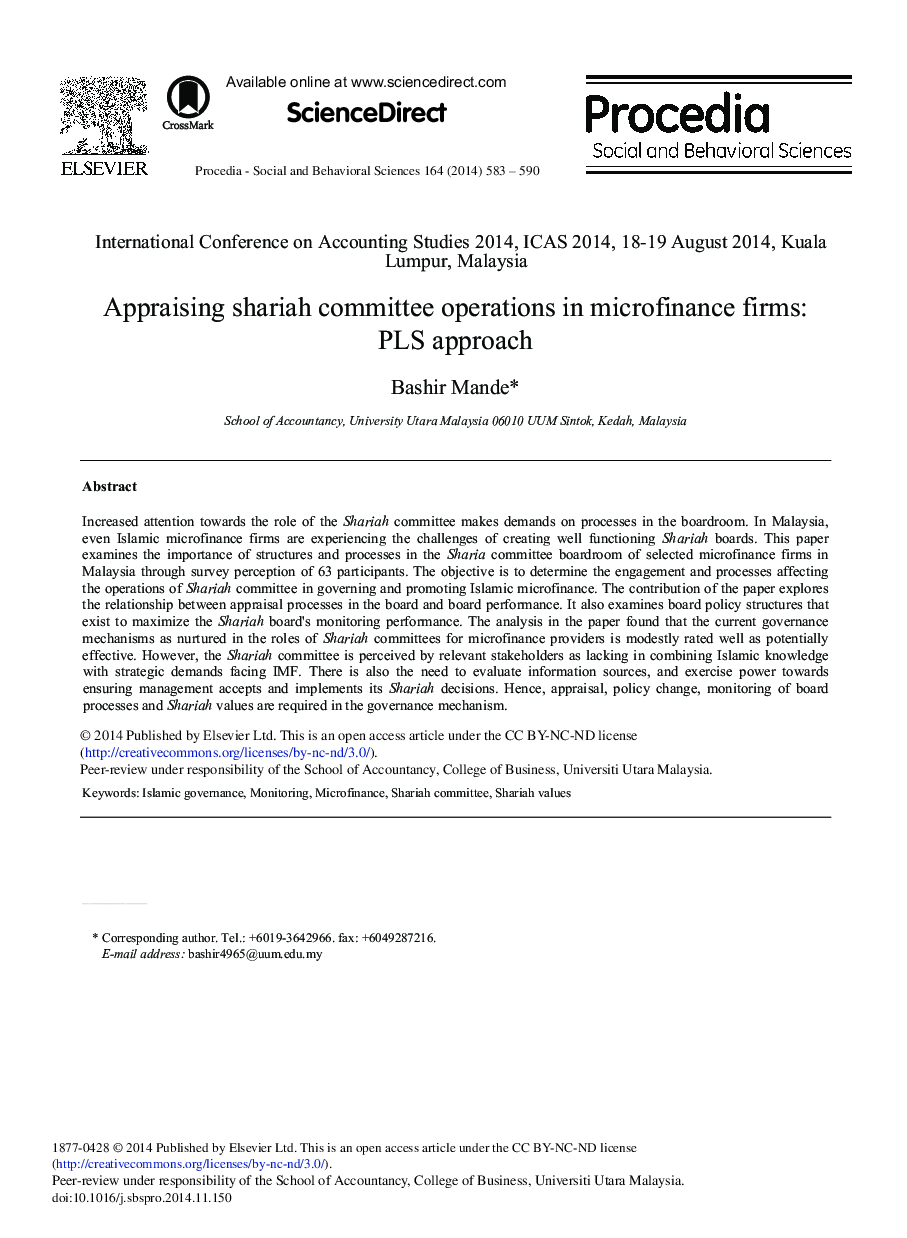| Article ID | Journal | Published Year | Pages | File Type |
|---|---|---|---|---|
| 1111465 | Procedia - Social and Behavioral Sciences | 2014 | 8 Pages |
Increased attention towards the role of the Shariah committee makes demands on processes in the boardroom. In Malaysia, even Islamic microfinance firms are experiencing the challenges of creating well functioning Shariah boards. This paper examines the importance of structures and processes in the Sharia committee boardroom of selected microfinance firms in Malaysia through survey perception of 63 participants. The objective is to determine the engagement and processes affecting the operations of Shariah committee in governing and promoting Islamic microfinance. The contribution of the paper explores the relationship between appraisal processes in the board and board performance. It also examines board policy structures that exist to maximize the Shariah board's monitoring performance. The analysis in the paper found that the current governance mechanisms as nurtured in the roles of Shariah committees for microfinance providers is modestly rated well as potentially effective. However, the Shariah committee is perceived by relevant stakeholders as lacking in combining Islamic knowledge with strategic demands facing IMF. There is also the need to evaluate information sources, and exercise power towards ensuring management accepts and implements its Shariah decisions. Hence, appraisal, policy change, monitoring of board processes and Shariah values are required in the governance mechanism.
